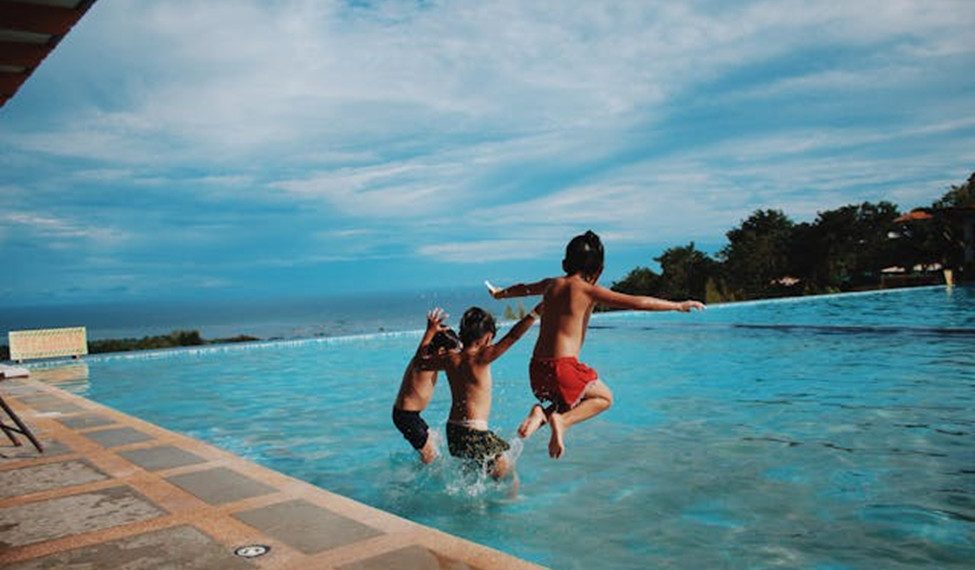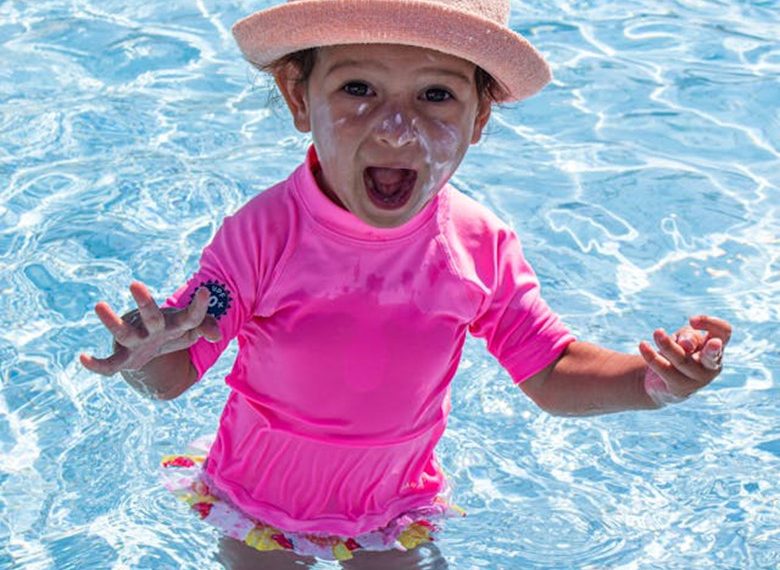
The summer heat is becoming unbearable, leading families to spend more time by the water, whether in the pool, by the lake, or at the beach.
While swimming is the ideal way to cool off, some kids are still developing their skills. This creates a considerable hazard and makes it vital for parents to learn water safety guidelines. Visit How water smart is your child? (hvparent.com) to find out how water smart your child is.
The CDC – Centers for Disease Control and Prevention deems drowning as the primary cause of death among kids ranging in age between 1 and 4 (injury-related, unintentional). For kids ranging in age between 5 and 14, it’s the second leading cause of death.
Let’s review water safety rules to follow to protect your children when they’re around the water.
Rules For Water Safety for Kids
Prevention and monitoring of children are key to avoiding a tragic accident around a pool, hot tub, lake, pond, or even the home’s bath. The biggest threat with toddlers exposed to a body of water is having access without supervision. A child should never be left unattended where there’s water.
Small children can drown quickly and in as little as a spoonful of water. Systems should be in place to alert adults when a child attempts to access water when a parent is not present, such as alerts or alarms.
When it is time to swim, aside from being supervised, a child should wear a life vest or use flotation suits until they’re strong swimmers. Parents should also be trained in CPR for optimal safety, whether in the water or out. Here are more tips focused on keeping kids safe around and in the water.
Close supervision
The most critical rule with water safety for children is always to monitor them when they’re near or in the water. That means being close enough to reach out and grab them quickly. They should never be unattended, not even for a “quick second” while you handle something.
The Consumer Product Safety Commission reports that drownings occur primarily when children have been left unsupervised. Children typically don’t scream or make noise, nor do they thrash about after inadvertently landing in a pool of water.
The beach is particularly dangerous, considering the unpredictability of the ocean. The child can be pulled in by the tides and knocked over by harsh waves instantly. A small child should be held or hold their hands tightly as they wade into the water. Click for water safety tips for babies and kids.
Swim lessons
A child should begin swimming lessons as soon as five years old to become comfortable in the water. Coaches teach essential skills, including treading water, float, and breathing techniques. Despite gaining swimming skills, kids are still at high risk for drowning.
This is a primary reason why life jackets should be prioritized. They’re critical for kids who are weak swimmers or in challenging situations, such as when many people are in the water. The life vest should fit and be appropriate for your child’s weight and size.
The fencing

For homes that have pools in their garden, a fence is often required surrounding the pool and ranging roughly 4 feet high or higher. The fence should have a self-closing and latching gate with the latch out of reach of children and lock securely. This prevents your kids and neighborhood children from accessing the water.
When a pool is easily accessible, curious neighborhood kids anxiously want a chance to try it out. Most won’t wait to be invited; they’ll sneak over when they think no one is paying attention. It’s kids being kids. That’s especially true if the temptation of floats or toys are lying around.
As a responsible pool parent, all pool accessories should be stowed away out of sight when the pool is not in use. A secure cover should be kept over the water for optimal protection and safety if there’s no fence with a locking gate.
The alcohol
Many parents may not consider this to be a child water safety rule. Still, alcohol is a vital guideline to pay attention to, particularly when having social gatherings, camping trips, or holidays at the beach with friends and family.
If you indulge in an adult drink, your judgment will be impaired, causing a slower response if an emergency were to happen, such as your child needing to be rescued. It can hinder your ability to function, making it difficult to get to them fast enough.
Final Thought
From an early age, you should be Guiding Your Child to Be Water-Smart, sharing water safety rules, and explaining the risks associated with being in and around the water without a parent close by.
Rules should be established when the kids are exposed to water, and they should be fitted for a life jacket, which will need to grow as they do. The greater the focus is on safety from the start, the more safety-conscious they’ll be into adulthood.



